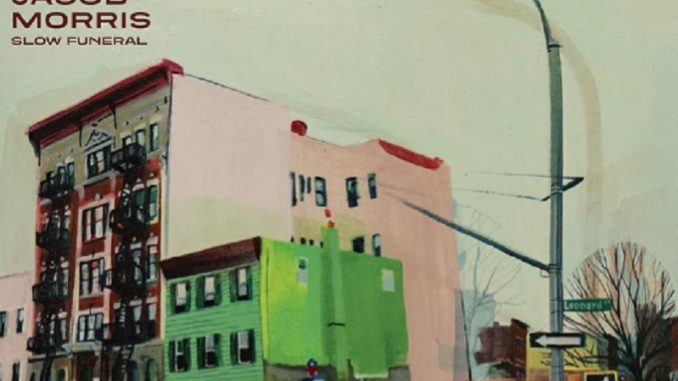
Jacob Morris has some high profile fans – Patterson Hood has written the Bio for Jacob Morris to accompany this release. You know what, let’s be lazy for once and just quote in full what the Drive By Truckers frontman has to say:
“Jacob Morris is a multi-instrumentalist (singer, cello, guitars, bass, keyboards) living just outside of Durham, North Carolina. He began studying cello at the age of four in Austin Texas, playing in his musical family (his father is a celebrated luthier and fine picker). Upon moving to Athens, Georgia in 2005, he quickly found his place in the legendary music scene there playing with (among others) Vic Chestnut, Ham1, and Madeline Adams. During that time, I would see him playing in various bands and became a huge fan. He released his stellar debut album Moths that was one of my favorite albums of that year. I later recruited him to play in my Downtown Rumblers band for my solo album Heat Lightning Rumbles in the Distance and the month-long US tour we did in the fall of 2012.
Jacob has resurfaced with another beautiful collection of songs. ‘Slow Funeral’ was recorded at 1093 in Athens, Georgia by John Speigel. Recorded mostly live in the studio during late night sessions, the record draws you in with its midnight vibes and hypnotic pull. In addition to his excellent musicianship, Jacob has an angelic voice and writes fantastic songs. He is often compared musically to such artists as Nick Drake, John Cale and Elliott Smith, all great comparisons but he’s definitely his own artist with his own sound and style.
On the EP ‘Slow Funeral,’ Jacob is ably backed up by Elephant Six veteran John Fernandes, as well as Thomas Valadez, Cullen Toole and Al Daglis (who co-produced the album with Jacob). These six songs are beautiful and thoughtful, pulling you into its trancelike universe and wrapping around you like a warm blanket on a snowy morning.“
So there you have it – this song is, Morris asserts an anti-war song, of which he says “I don’t get how history is written to glorify anyone involved in war. Or why war seems to be a totally acceptable necessity for humanity. And who owns history, and what of those that have been mostly erased? Time is still moving forward, although it seems weighed down so heavily by the past. What we decide to salvage from the past is a mirror to what we value in the present and for the future.”


